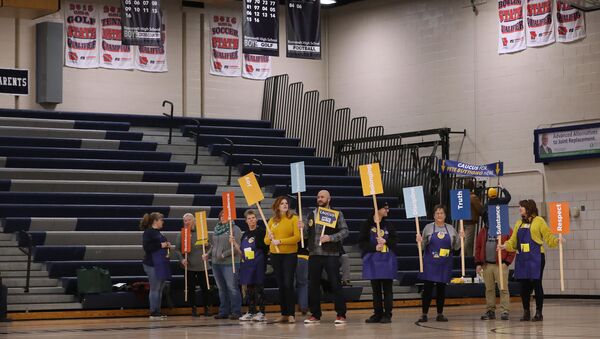Despite being a relatively small state, and not a particularly diverse one, Iowa’s verdict is seen as a indicator of how primary contestants may do elsewhere, as voters may look at the Iowa results, as well as the media coverage of them, for clues as to which candidates can actually win in November.
Since 1980, every winner of a major-party presidential nomination, except one - Bill Clinton in 1992, started off by winning either the Iowa caucuses, the New Hampshire primary, or both.
More specifically, two of the three most recent presidents — Barack Obama and George W. Bush — kicked off their primaries by winning Iowa but losing in New Hampshire. More recently, Donald Trump lost Iowa, but won New Hampshire and subsequently the Republican nomination.
Whoever ends up winning the Hawkeye State’s caucus will soon have to turn their attention to the next contests in other “early states”, including New Hampshire, where potential nominees will compete in a first-in-the-nation primary on 11 February, Nevada on 22 February and South Carolina on 29 February.
The biggest single day of the Democratic primary epic, Super Tuesday on 3 March, will see a third of the total party delegates awarded.
Among the 16 contests slated for then are: California, which will award 415 delegates; Texas with 228; North Carolina, and Virginia.
Overall 24 contests will take place between March and the final primary in June. The nominee will be named officially at the Democratic National Convention in Milwaukee, Wisconsin in July - and will then go forward to a final showdown with President Trump on 3 November 2020.
When Did Iowa Become a Thing?
Iowa’s leverage may seem unreasonable to many, as the small, predominantly white state is hardly representative of the US in general. But there are reasons for Iowa’s historic role.
Iowa has held the first Democratic presidential nominating contests in the country since 1972, with the GOP following suit in 1976.
According to Kathy O'Bradovich, political columnist for the Des Moines Register, Iowa’s leverage happened rather accidentally, after the 1968 Democratic National Convention, which took place amid the Vietnam War and the then racial tensions.
The Democrats wanted to make the Convention more inclusive and spread out presidential nominations to each individual state. Iowa, notably, had to start the earliest, given its historically complex interstate convention procedure - precinct caucuses, county conventions, and district conventions followed by a state convention.
The small Midwestern state suddenly hit the headlines after peanut farmer Jimmy Carter made it all the way to the White House in 197t, having focused on winning the Iowa primary.




